IT Architecture & Harmonisation
Roadmaps
As part of this work package eFTI4EU uses country-specific roadmaps to identify key elements such as requirements for national eFTI implementation, resource needs (both financial and technical), and the necessary specifications for the long-term operation of the eFTI exchange environment.
The participating Member States will identify existing systems, requirements for national eFTI implementation, resource needs, planned pilots, and long-term operational requirements for the eFTI exchange environment. This information will be documented in national roadmaps, serving as project plans for eFTI introduction. These roadmaps analyse strategic, organisational, technical, legal, and financial conditions in Member States to guide the development of eFTI gates according to EU and Member State requirements.
A work plan with the support of Member States will outline roadmap requirements, and a template will structure the roadmaps for harmonised data collection. The Roadmap Status Report will provide an overview of commonalities and differences in Member States, acting as a benchmark for harmonisation in the eFTI exchange environment, ensuring interoperability.
eFTI Regulations
eFTI4EU relies on a good exchange between the EU Commission as the originator of the eFTI Regulation and the subsequent legal acts, and the stakeholders responsible for its implementation. The latter are mainly the Member States and their competent authorities, which are responsible for the implementation of the eFTI Gates, as well as interested economic operators that want to operate an eFTI Platform.


